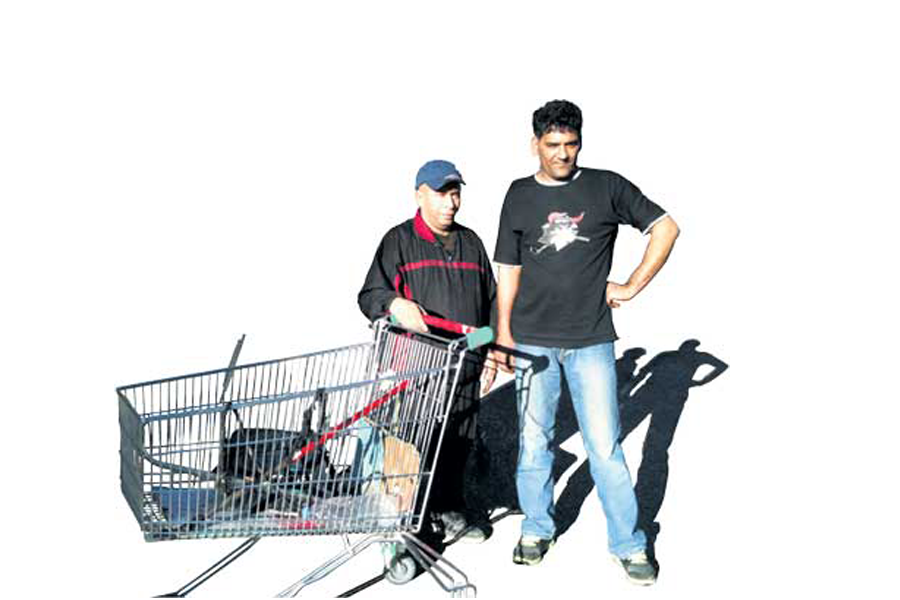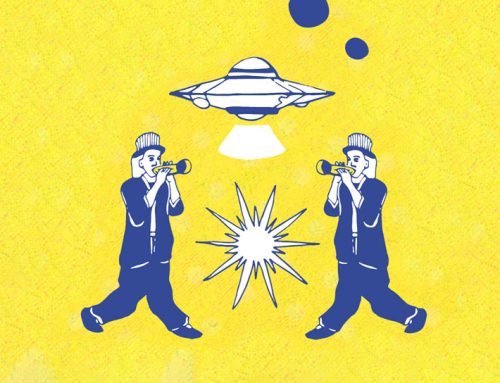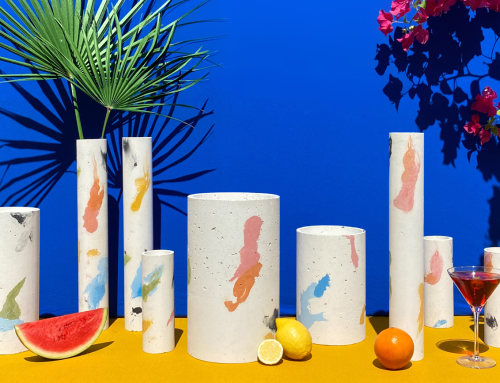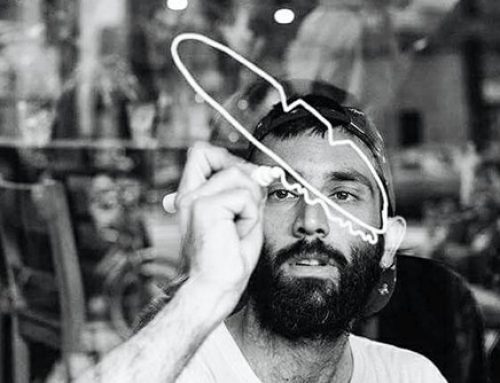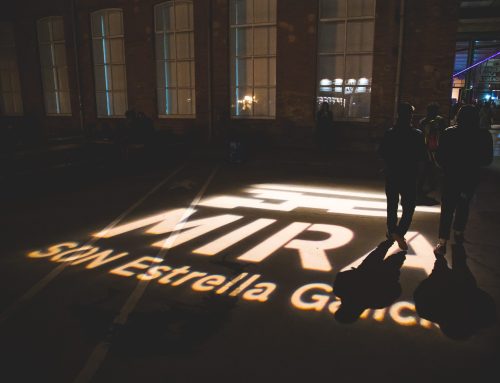Shoukat (left) and Akram (right) work together most days, keeping an eye out for each others’ trolleys, helping haul big finds into them and generally working as a team.
What is chatarra? It is plural, it is many, and it is everywhere. It is the stuff you chuck out but remains useful. In the big scheme of things it’s just raw material transformed between uses. A metal hook, a light casing, a washing machine, a tyre, a pipe. Of course all of this stuff doesn’t vanish at the point of being thrown out. It carries on being useful; one man’s rubbish is another man’s commodity.
In the chatarrero trade it is best to have a partner, and Shoukat (left) and Akram (right) work together most days, keeping an eye out for each others’ trolleys, helping haul big finds into them and generally working as a team. They also share a rented apartment with two others somewhere in Raval, close to where we met. Originally, Shoukat had a contract to work at the checkout of a supermarket, which he did for two years. But that contract ended and ever since it’s been the life of a chatarrero. There are bills to pay, and food, and he’s trying to save, too. Getting back to Kashmir is expensive he tells me; maybe soon he will go back.
We set off in the direction of Barceloneta. “It was better at the checkout; normal hours,” he said quickly. We had met on a Monday morning; 9:30 at the cat statue in Rambla del Raval. “We work mostly at night, not in the morning. It’s best at night.” This didn’t seem fair; I wanted to track a normal day’s work and had interrupted the schedule. I was assured that it was ok: “Any hour there is always chatarra.” As we made our way through Raval we passed several people who gave a wave, a shout or a nod. I could tell that I was in the company of respected community-type guys here. We passed someone else who was sitting on the ground, looking a bit lost. Shoukat looked over and said, “He should do what we do. He is not useful like that. There is always chatarra.”
By 10am we had gathered up a lot of small bits and pieces and an assortment of unrecognizable things was growing in the trolley. In goes the broken metal casing for a Bicing light, then a rusty red broom tube with the paint flaking. It was too long to fit into the trolley, so Shoukat gave it a knee in the middle and it doubled over. The next item was a small black television (cable missing), then some metal panels from a larger something. All this stuff was just lying on the ground. Shoukat looked into the bins too but most of them were empty having been taken away the night before. “See, it’s better at night,” he says. But once into Barceloneta our luck started to change. The bins (the big grey ones, that is) hadn’t been emptied yet. I started thinking that there must be a system to this, a pattern that shadows and mirrors the one the Ajuntament has laid out for collections. On leaving Barceloneta around 10:30 we picked up an entire oven. It looked nearly new, but there must have been something wrong with it. We headed back towards Raval, but going via the Gothic quarter.
Their carts usually deliver 20 to 25 kilos of good stuff to the depot per trip. A kilo of steel sells for 9 cents. Copper is currently set at around 1.70 euros per kilo but has been known to reach up to four euros. The price fluctuations apparently depend a lot on what the Chinese are doing with it.
On an average day, Shoukat and Akram manage to fill both their trolleys to the brim twice, three times if they find something special. Their carts usually deliver 20 to 25 kilos of good stuff to the depot per trip, where waste is removed and useful, raw materials are bought and sorted. The metal differs in sale price and is sold by the kilo. A kilo of steel sells for 9 cents. Copper is currently set at around 1.70 euros per kilo but has been known to reach up to four euros. The price fluctuations apparently depend a lot on what the Chinese are doing with it. And last but not least, aluminium is priced similarly to copper at around 1.70 euros per kilo. It is largely steel that chatarreros find on the street, making an average 20 to 25 kilo trolley worth a mere handful of euros, although bumper bonus finds occasionally bring in more cash. After six hours of city searching we had a full trolley load.
This is the city reality in a world of resource scarcity, opportunity and limitations. To complicate matters, the number of chatarreros in Barcelona is on the rise, making business steadily more competitive. Shoukat’s candid estimate for the center of Barna is that 10 years ago there were maybe 20 chatarreros and that now there are 200. The last good year was 2009. Since then it’s been tougher.
A man approached us wanting to buy the TV. “No problem,” Akram piped up. I was shocked. It was almost the first thing he had said. “Five Euros,” he continued. The man looked dubious. “Does it work?” “You can make it work,” said Akram. The man smiled and looked at it again scratching his head. “Two Euros?” “Done!”
Someone else stopped us in Raval, this time interested in the oven. This man also offered two euros for it, not exactly a good deal considering ovens can be sold for one hundred times as much when new. This time Akram said no. It was better to take it up to Poblenou and to sell it for the parts at the depot.
I wonder about other work. What would they be doing if not this? Before coming to Barcelona Akram was a chef and Shoukat a musician, playing the tabla. Great. A meal and a song! We talked about Nasrat Fatha Akram Kahn, a singer and national treasure from Pakistan. Shoukat sang for us whist we pushed the trolleys along Carrer Mercé.
Poblenou offers good pickings. The small-scale factories, workshops and offices of the district churn out metal chatarra at a higher rate than other parts of the city. There are also two depots there where the chatarreros can deliver their material findings. But Shoukat’s routes, his system and patterns don’t limit him to Poblenou. Having started off in Raval at 9:30, visited Barceloneta briefly by 10am, Gótico by 10:30, his daily journey could take him anywhere. “‘I know where and when it’s best to get chatarra, in all neighborhoods,” he said.
At 11:30 I left them in Raval so he and Akram could catch up on sleep, only to pick up the trail again later at 21:30. “Normal hours,” he had said. It would take another four hours to fill both the trolleys and finally get into Poblenou. For Shoukat and Akram the pattern for discovering chatarra in Barcelona is guided by an understanding of subtle changes in the city rhythms. An example is the attraction of working at night, which is twofold. After shop closing times, useful stuff gets put outside, but pushing a trolley on the patterned pavements is both noisy and slow going. With fewer cars at night there is the chance to move onto the smoother road surface and still be safe.
It’s not illegal to be a chatarrero, but the police are often close by. It’s the competition that’s the problem, as some newer factions prefer to steal a full trolley or fight for it.
It’s not illegal to be a chatarrero, but the police are often close by. It’s the competition that’s the problem, as some newer factions prefer to steal a full trolley or fight for it. But Shoukat’s a tough guy. “The police know who they are – we don’t do that, most don’t but some guys fight directly,” he grinned then to reveal a missing tooth. “That’s another reason to work together. It’s safer with two,” he said. “But there are fines, too, for fighting. 300 euros! We don’t get those.”
At times when the trolley is full and the depot is shut the trolleys are hauled back to their place. Some guys chain them outside, but for Shoukat and Akram its best to bring it all into the flat. I understand that theirs is not a ground floor place. As for the police, both had great respect and wanted to make that clear. “They are good people – very kind people” they repeated. I got the distinct feeling that the police look out for and after them, as long as there is nothing wrong, nothing violent, nothing criminal.
We were in Raval when the remark about police respect was put to the test. A police check from the Guardia Urbana showed that all data was in order and that these guys were the trusted kind; questions came with smiles and jokes. It was only me who got a raised eyebrow for not having my NIE to show.
As the material economy demands, ‘chatarra never sleeps’ and neither will Shoukat and Akram, especially if the Barcelona chatarrero population continues to increase. Gleaning information from the pair was a relatively easy job for me, but gleaning metal from the streets is becoming more complicated for them.


